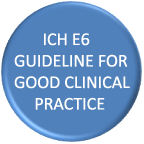
The TCC will act on behalf of the Sponsor in co-ordinating the trial and will be responsible to the TMG to ensure that all Sponsor's responsibilities are carried out. The responsibilities will include (but not limited to):
- Report
to the Trial Steering Committee
- Maintain
the Trial Master File
- Identify
trial sites
- Confirm
all approvals are in place before release of the trial treatment and
the start of the trial at a site
- Provide
training about the trial
- Provide
study materials
- Data
management centre
- 24-hour
advice and unblinding service
- Give
collaborators regular information about the progress of the study
- Respond
to any questions (e.g. from collaborators) about the trial
- Ensure
data security and quality and observe data protection laws
- Safety
reporting
- Ensure
trial is conducted in accordance with the ICH GCP
- Statistical
analysis
- Publication of trial results
TRIAL MANAGEMENT GROUP (TMG)
The Trial Management Group will consist of the Protocol Committee members plus a trial manager, data manager and trial administrator.
TRIAL STEERING COMMITTEE (TSC)
The
role of the TSC is to provide overall supervision of the trial. In particular,
the TSC will concentrate on the progress of the trial, adherence to the
protocol, patient safety and consideration of new information. The TSC
must be in agreement with the final protocol and, throughout the trial,
will take responsibility for:
(a) major decisions such as a need to change the protocol for any reason
(b) monitoring and supervising the progress of the trial
(c) reviewing relevant information from other sources
(d) considering recommendations from the DMC
(e) informing and advising the TMG on all aspects of the trial
The steering committee should consist of relevant experts, clinical trialists and a consumer representative. Face to face meetings are usually held at regular intervals determined by need, but no less than once a year. A TSC Charter is agreed at the first meeting which will detail how it will conduct its business.
When a reasonable number of outcome data are available, the TSC will review the rate of recruitment into the trial and the overall event rates. The TSC will consider the extent to which the rate of recruitment and the event rates correspond to those anticipated before the trial and will take whatever action is needed in light of this information.
DATA MONITORING COMMITTEE (DMC)
To provide protection for study participants, an independent DMC is appointed to oversee the safety monitoring. The DMC will review on a regular basis accumulating data from the ongoing trial and advise the TSC regarding the continuing safety of current participants and those yet to be recruited, as well as reviewing the validity and scientific merit of the trial.
The
DMC composition, name, title and address of the chairman and of each member,
is given in the DMC Charter which will be in line with that proposed by
the DAMOCLES Study Group. Membership includes expertise in the relevant
field of study, statistics and research study design. The DMC Charter
includes, but is not limited to, defining:
(a) the schedule and format of the DMC meetings
(b) the format for presentation of data
(c) the method and timing of providing interim reports
(d) stopping rules
Standard Operating Procedures: The DMC has the responsibility for deciding whether, while randomisation is in progress, the unblinded results (or the unblinded results for a particular subgroup), should be revealed to the TSC. The DMC Charter states that they will do this if, and only if, two conditions are satisfied:
(1) the results provide proof beyond reasonable doubt that treatment is on balance either definitely harmful or definitely favourable for all, or for a particular category of, participants in terms of the major outcome;
(2) The results, if revealed, would be expected to substantially change the prescribing patterns of clinicians who are already familiar with any other trial results that exist. Exact criteria for "proof beyond reasonable doubt" are not, and cannot be, specified by a purely mathematical stopping rule, but they are strongly influenced by such rules. The DMC Charter is in agreement with the Peto-Haybittle stopping rule whereby an interim analysis of major endpoint would generally need to involve a difference between treatment and control of at least three standard errors to justify premature disclosure. An interim subgroup analysis would, of course, have to be even more extreme to justify disclosure. This rule has the advantage that the exact number and timing of interim analyses need not be pre-specified. In summary, the stopping rules require extreme differences to justify premature disclosure and involve an appropriate combination of mathematical stopping rules and scientific judgment.



